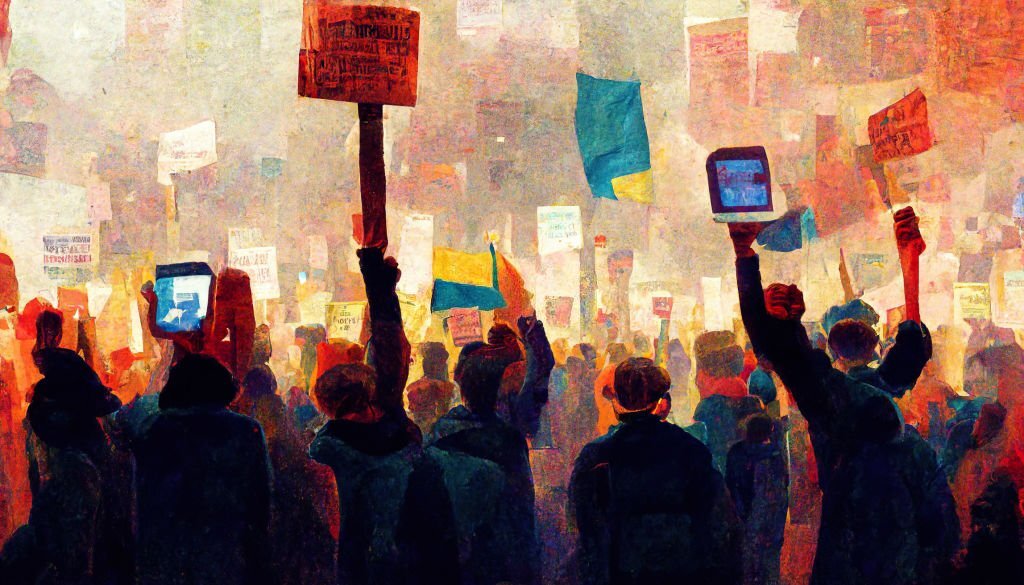The First World War changed Europe politically. Germany abolished the monarchy and established the first democratic government the Weimar Republic.
The Austro-Hungarian Empire collapsed, and the countries of Eastern Europe became independent.
Along with this new political movement emerged a new political consciousness in the society, especially in Germany and Austria.
Impact Of the Russian Revolution
The Russian Revolution inspired the deprived classes so that they, too, could get their fundamental rights.
After the war, the nations got the right to adult suffrage. In every political movement, there was an expectation that they could bring political change according to their ideals.
But where these effects existed, Germany, in particular, was in disarray due to defeat.
In this situation, the Communist Party was established. An attempt was made to bring revolution to Germany with the help of Russia. But on the other hand, there were anti-revolutionary movements.
These included especially those soldiers who had returned after defeat. They had grief and anger and were ignorant of the intricacies of politics.
So, when the Communist Party tried to bring about a revolution, these former soldiers and conservative politicians united against it. They killed two famous leaders of the Revolution, Rosa Luxemburg, and Willem Knecht.
Their opponents tortured them, killed them, and threw their bodies in the river. So, after the war in Germany, the communist movements ended.
Situation In Austria
On the other hand, Austria was not immune from this ideological turmoil. There was economic depression due to the war.
Most people were unemployed; the ruling class was not concerned about getting out of this situation.
When the problems escalated, a crowd gathered in Vienna, Austria, on July 25, 1927. This crowd had gathered by itself.
There was no one to organize it, so the crowd adopted the way of expression against the state. They set fire to the ‘Palace of Justice’ with petrol.
This resulted in the state calling in the army to disperse the crowd. It was now a war between the state and the mob, in which the crowd was fired upon, killed, and dispersed.
But after those clashes broke out between the mob and the army all over Austria, in which the mob could not continue its movement for long.
The Austrian conservatives, afraid of mobs and revolution, decided to consolidate their power and crush revolutionary mob politics.
They collected funds while the army and its institutions strengthened. This new trend in politics destroyed the progressive forces, especially in Germany, Italy, and Austria, and gave rise to fascist forces.
Mussolini And Hitler
In Italy, Mussolini consolidated power through speeches and processions, uniting the masses in nationalism, a glorious past, and hope for a golden future.
Similarly, when Hitler established his government in Germany in 1933, he turned the common people against Jews and minorities in the name of racism and the greatness of the German nation.
Both Mussolini and Hitler executed their opponents through mobs. There were mob groups who monitored and intimidated the anti-government people.
There was no room for freedom, justice, and humanity for the fascist mob. It not only banned political ideas and thoughts but also required the intellectuals to support the fascist ideology.
Because of these fascist ideas, they adopted the same model wherever dictatorial regimes were established in Asia and Africa. They used the mob to destroy all movements and forces against them.
Although there are no longer fascist governments in Europe, many such parties still embrace racism and intimidate the refugees coming to Europe.
Wherever the ideologies of fascism are, they undermine democratic traditions and institutions, create hatred and prejudice, and destroy members of society.
Therefore, the crowd cannot decide on its own. They are under the influence of their leaders, who provoke their emotions and justify bloodshed, massacres, and looting.
New Research In Mobs Politics & Culture
New research into the European crowd continued in the wake of World War II. People became politically conscious by promoting democratic institutions and the media.
Hence new mass groups emerged, such as labor, artisan, student, teacher, women, and peasant movements.
These new masses would gather for their demands, and the new leadership would force the state to concede to their demands. Sometimes it was successful, and sometimes it failed.
The Vietnam War ended only because of the demands of the masses. African Americans also gained political rights due to mass protests.
Mob culture still thrives today and does not lose its energy despite failure, but there is a difference in the mob mentality of European and third world countries.
Mobs Politics & Culture In Third World Countries
If we mention third-world countries here, we find crowds in many forms. For example, a large group is the Tablighi Jamaat in Indian Subcontinent, which is engaged in religious affairs away from politics.
Then each political and religious party has its mobs, which it uses to project its power and intimidate its opponents.
Therefore, these mobs have neither political consciousness nor are aware of their fundamental rights.
Therefore, these mobs are always a threat to law and order and cannot be expected to play any positive role in building society.

